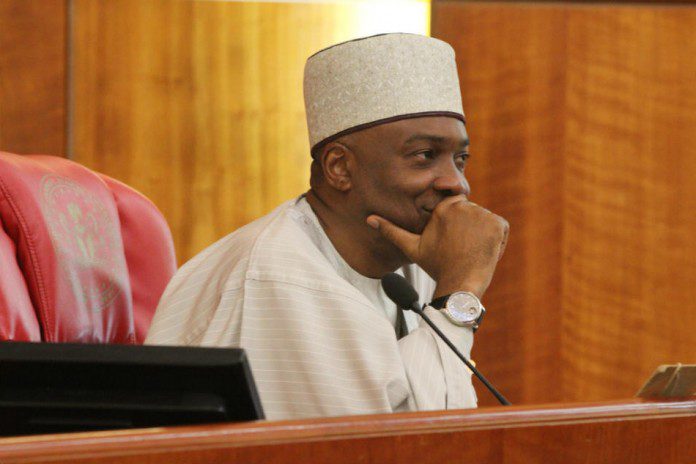The Senate President, Bukola Saraki, has returned to the Code of Conduct Tribunal.
This followed the ruling of the Appeal Court, which held that the Senate President had a case to answer with respect to three of the 18 count charges brought against him by the Economic and Financial Crimes Commission (EFCC).
A three-man panel of the Appeal Court led by Justice Tinuade Wilson-Akomolafe had on December 12, 2017, nullified 15 out of the 18 count charges brought against the Senate President and ordered that he should defend himself on counts 4,5 and 6 which had to do with how he acquired his properties at number 17 a and b Mac Donald street Ikoyi.
The court held that while the Senate President declared in his asset form that the properties were acquired through the sales of commodities, the testimony of one of the prosecution witness who is a banker to the Senate President, indicated that the properties were bought through a loan.
At the moment the Senate President is at the tribunal in the company of some lawmakers, awaiting the arrival of the panel of the tribunal led by its chairman Mr Danladi Umar.
The Senate President has proceeded with his defence as ordered by the Appeal Court.
According to his counsel, Paul Usoro, the defence has four witnesses all together with Dr Ademola Adebo, who is a commissioner with the Code of Conduct Bureau, and was appointed April 10, 2010, but resumed 30, 2010.
He disclosed that in June 2017, there was a TV announcement disengaging him and other commissioners from the tribunal board contrary to their letter of appointment.
He further said that because his appointment is constitutional, he approached the national industrial court, which restrained the Federal Government from taking any action in relation to the board of the CCB.
When asked if the matter is still subjudice, Mr Adebo answered in the affirmative.
Mr Adebo noted that he has a World Bank Certificate in Asset Declaration and Management, and has a post-graduate certification in Anti-corruption.
Attempts by the defence to enter Mr Adebo’s resume as evidence was objected to by the prosecution, but the chairman of the tribunal turned down the objection ruling that the resume will not cause any harm.
In the said resume Mr Adebo listed his activities at the CCB one of which was the chairman’s asset declaration committee.
He said that his assignment was to make the asset declaration less cumbersome and also digitalize the asset declaration system, such that a declarant can declare his asset online.
He adds that the form has been reviewed and portal set up, but it is yet to take off.
He was then asked that by virtue of his assignment he is conversant with form CCB1.
He further stated that he had supervised and personally signed and verified more than 3000 of those forms.













